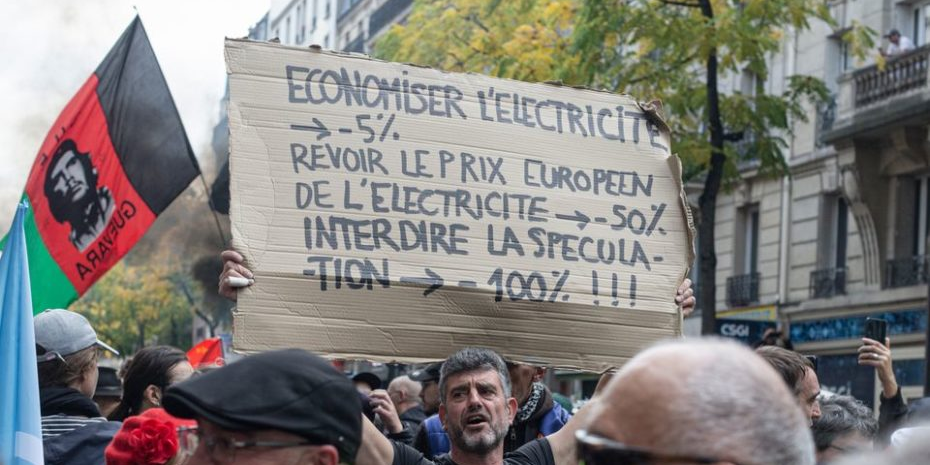Eurosceptic parties won 135 out of 751 seats in the last European Parliament election (2019).[1] This may not seem like much, but it raises the question of what is happening to the integrative concept of the European Union. A Green politician and current German vice chancellor, Robert Habeck, wrote a book about this in 2010, describing a left-wing patriotism that he transfers to Europe as an integrative project. This means the inclusion of people in a system being aware of their rights and duties and exhibiting a transformative power within that system resulting in a shared feeling of belonging.[2] His thinking is based on the foundation of the European Union, which among other things is laid down in the Treaty of Maastricht. But how did this inherently inclusive idea of left-wing patriotism develop here and how does it influence European integration?
Left patriotism and its integrative function
“Left” describes, according to Lipset et. al: “(…) we shall mean advocating social change in the direction of greater equality (…)”[3]. To strive for social change in the direction of greater equality seems to be part of left patriotism. In his book, A Leftist Plea, Habeck describes it as a political narrative with a purpose, namely to create people’s confidence in a system where change is good and needs to be touched, as well as the existence of justice and internationalism.[4] According to Habeck, in leftist patriotism, the freedom of citizens is secured by having institutions and their organs watch over their observance, for example, the police. Crucially, however, these institutions can and must be constantly questioned in order to improve the system and promote the common good of all. In this way, (left-wing patriotism) “organizes integration into a society”[5] and thus has an integrative effect.
Infancy – The integrative function in the European Union
European integration increasingly developed after World War II as a preventive measure to pacify the continent, with this conviction further pushed by the West/East conflict.[6] In the course of these thoughts, the Coal and Steel Community was founded in 1951, in which the members submit to supranational control, whereby the Council of Ministers of the Union may take binding decisions. [7] Supranational control describes an institution whose decisions are binding on its members.[8] This also indicates the basic idea of left patriotism, which envisions strong institutions to maintain a system that has the common good in mind. At this point, there are basically two different approaches to the nature of European cooperation, the intergovernmental, as well as the federal. In the former, the autonomy of the participating states is in the foreground, while in the latter, this is increasingly handed over to a supranational organization.[9] The EU can be assigned to both approaches. It is clearly visible, however, that its integrative function alla left patriotism was already in its infancy.
Growing up – The integrative function in the Maastricht Treaty
European integration reached young adulthood with the Maastricht Treaty, which in 1992 linked the individual member states even more closely together.[10] On the very first page of the treaty, the representatives of the member states determined to introduce a common European citizenship. The right to vote and the right to petition are integrative elements. Thus, EU citizens are entitled to belong to and shape their political system. This can be partially attributed to left-wing patriotism.
The integrative function concerning the EU election in 2019
However, the understanding and implementation of a left-wing European patriotism is constantly evolving and can be traced in the position papers of various European parties. For example, the Party of European Socialists (PES), the European People’s Party (EVP/EPP) and the Party: The European Conservatives and Reformists Group (ECR).
Especially the position paper of the PES, with the idea of a Europe-wide unemployment insurance, the strengthening of the EU budget and the strengthening of the rights of EU citizens, shows strong tendencies towards left-wing patriotism. Here, young Europeans in particular should be more involved in European processes.[11]
The situation is similar with the EPP/EPP, which pursues a mixture of federal and intergovernmental approaches to integration, but in principle has a strengthening of the EU as an institution in mind. EU as an institution. For example, it wants to introduce a legislative right of initiative for the EU Parliament and thus expand the rights and duties of EU citizens. It also envisages qualified majority voting in EU foreign policy.[12] After the Treaty of Maastricht in which the EU already shows supranational tendencies, this is supported by the two largest European people’s parties (PES; EPP/EPP)[13], this will thus be expanded even further. In this respect, left-wing patriotism works and deepens European integration. It leads to the strengthening of the EU as an institution, the strengthening of the rights of its members and their protection, whereby the integration into the EU system takes place, which pursues the common good of its members. The can be considered as the influence of the integrative function.
In the course of this, however, there are also opposite tendencies, as the position paper of the ECR clearly shows.[14] Here, the focus is again to be more on national borders, or the powers of the EU are to be reduced.[15] This has nothing to do with the integrative function only in the remotest sense. The ECR is a European People’s Party and therefore cannot completely withdraw from European integration. In its position paper, however, it clearly advocates a return to the nation-state. which contradicts left-wing patriotism and European integration.
Challenges and new approaches to integration?
The next EU election will take place in 2024. On the way there, the world has already been hit by a pandemic and the European endeavor of continental pacification has been shaken by the Russian war of aggression. To cushion the consequences of the crises, nation-state tendencies can also be discerned, worthy of being mentioned in this context is the German “Doppel Wumms” (double whammy)[16]. Ironically, it is Robert Habeck, co-author of the idea of left-wing patriotism, who has decisively shaped the nation-state-oriented project of German economic and energy security, thus meeting massive resistance from other European member states.
On the other hand, military integration projects, first and foremost NATO, are facing a northern expansion. However, changes in the perception of alliance structures have not yet significantly altered the organizational structure of the EU. It remains to be seen how the European parties will interpret this changed world situation and translate it into a political agenda. A left-wing patriotism to further shape and expand the existing system in the sense of the common good remains open to us and is now possibly as necessary as it has ever been.
Literature:
- Etzioni, Amitai, Die aktive Gesellschaft: Eine Theorie gesellschaftlicher und politischer Prozesse, Wiesbaden 1975.
- Gibowski, Wolfgang G, Die Bedeutung der Links-Rechts-Dimension als Bezugsrahmen für politische Präferenzen, in: Politische Vierteljahresschrift, 18 (2/3), 1977, S.600–626.
- Habeck, Robert, Ein linkes Plädoyer, Gütersloh 2010.
- Mayer, Peter, Europäische Integration, Osnabrück 2015 (2. überarb. u. erw. Auflage)
- Nieves (Hg.) European Union Politics, Oxford 2013
- Tinnefeld, Marie-Theres, Europäische Integration vs. Nationalismus, in: Datenschutz und Datensicherheit – DuD, 37 (7), 2013, S. 418–22.
Sources:
- ACRE (EKR), Alliance of Conservatives and Reformists in Europe. Retune the EU Jan Zahradil, 2019, https://ecrgroup.eu/publication/jan_zahradil_your_candidate_for_president_of_the_european_parliament, Stand: 1.11.2022.
- European Peoples Party (EPP), Manifest der EVP „Lasst uns das nächste Kapitel für Europa gemeinsam aufschlagen“, 2019, https://www.epp.eu/papers/manifest-der-evp/, Stand: 1.11.2022.
- Europäisches Parlament, Ergebnisse der Europwahl 2019, Europäisches Parlament 2019-2024, 2019, https://europawahlergebnis.eu/, Stand: 1.11.2022.
- Social Democrats (PES), Ein neuer Sozialvertrag für Europa, Manifest der SPE 2019, 2019, https://www.pes.eu/export/sites/default/.galleries/Documents-gallery/PES-Manifesto-2019_DE.pdf_2063069299.pdf, Stand: 1.11.2022.
- Sozialdemokratische Partei Deutschland (SPD), „DOPPEL-WUMMS“ FÜR BEZAHLBARE ENERGIE 2022, https://www.spd.de/aktuelles/detail/news/doppel-wumms-fuer-bezahlbare-energie/29/09/2022/, Stand: 01.11.2022.
- [1] Europäisches Parlament 2019.
- [2] Habeck 2010, S. 35.
- [3] Cited in: Gibowski 1976, S. 600. (and translated)
- [4] Ibid. S.21.
- [5] Ibid. S.37. (and translated)
- [6] Mayer 2015, S. 26. / Tinnenfeld 2013, S.418.
- [7] Mayer 2015, S. 26.
- [8] Etzioni 1975, S.572.
- [9] Nieve 2013, S.70.
- [10] Mayer 2015, S.38.
- [11] PES 2019, S.3.
- [12] EPP 2019, S.3-5.
- [13] Europäisches Parlament 2019.
- [14] ECR 2019.
- [15] Ibid. S.7.
- [16] SPD 2022, online.






